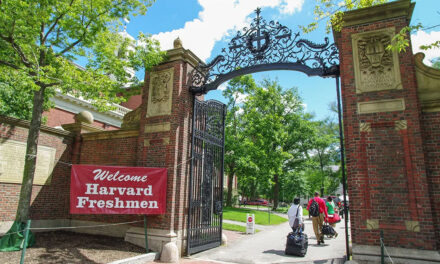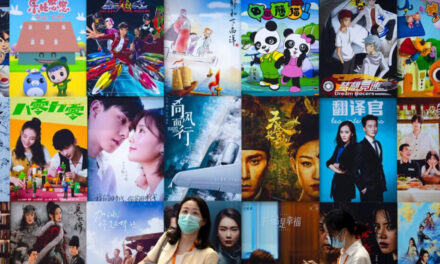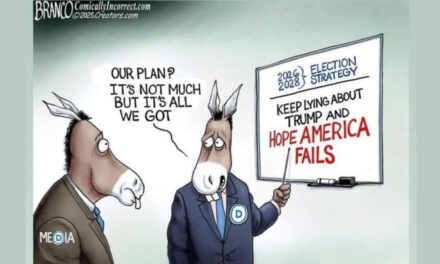
China’s Economic Slowdown and the Rise of the “Rotten-Tail Kids”

In recent years, China has faced a significant shift in its economic landscape, a far cry from the booming growth that once characterized the world’s second-largest economy. This downturn has given rise to a generation of young people who feel increasingly disillusioned and disconnected from the workforce. Known as “rotten-tail kids,” these young adults symbolize the growing number of educated Chinese youth who cannot find stable employment and are becoming increasingly reluctant to participate in a job market that offers little hope for their future.
A Once-Booming Economy Now in Crisis
For decades, China’s rapid economic expansion fueled dreams of prosperity and upward mobility, especially for those who pursued higher education. However, in recent years, several factors have contributed to a dramatic slowdown in the country’s economic growth. Even before the COVID-19 pandemic, China’s economy was showing signs of cooling down, but the pandemic’s movement restrictions and lockdowns dealt a severe blow, not just to economic activity but to the overall confidence of consumers and businesses.
“Money just disappeared in a way that I didn’t see coming,” said Chloe Fu, a 26-year-old who works for an online legal services firm in the provincial capital of Changsha. Her sentiment echoes the fears of many young Chinese who are increasingly concerned about their financial security in an economy that seems to be stagnating. While Chinese officials have set a growth target of 5% for the end of 2024, many analysts believe the actual growth rate may be far below this figure. Some respected scholars even suggest that China’s economy might not be growing at all.
The Struggles of the Educated Youth
For the older generation now entering retirement, life remains relatively stable. With modest but sufficient pensions and homeownership, many can look forward to comfortable golden years. However, for today’s youth, the picture is drastically different. The dream of a middle-class lifestyle, including homeownership and a stable career, is increasingly out of reach.
“The inability to afford a house and a car with a middle-class income isn’t unique to China,” noted a report on the country’s economic conditions. “But in China, the knife twists harder because of the height from which the economy has fallen, particularly for educated youth.” This sentiment is reflected in the experience of Liu Wenning, a middle manager at a Beijing internet company. “If you’d asked me a few years ago, I’d be planning to get my girlfriend a nice piece of jewelry for [Chinese] Valentine’s Day,” Liu said. “We went to a movie and dinner instead. It still felt like splurging.”
This economic strain is not only impacting day-to-day living but is also reshaping career paths for many. Once seen as a gateway to prosperity, a college degree no longer guarantees a stable and well-paying job. The youth unemployment rate reached an alarming 21.3% in June 2023, leading Chinese authorities to halt the publication of youth unemployment data temporarily. Even after revising their calculations, the figures remain grim. In July 2024, the jobless rate for youth aged 16-24 spiked to 17.1%, highlighting the ongoing struggle for young people to find meaningful employment.
Desperation and the Rise of “Rotten-Tail Kids”
The term “rotten-tail kids” has become a buzzword on Chinese social media, drawing parallels to “rotten-tail buildings”—unfinished and abandoned construction projects that symbolize the broader economic woes. These young adults, armed with degrees from prestigious universities, find themselves in low-paying jobs far below their qualifications, living off their parents’ pensions, or opting out of the job market altogether. Some have become “full-time children,” relying entirely on their parents for support as they see no viable career opportunities.
The desperation of the job market has also made young people more vulnerable to scams. A particularly shocking incident involved a 19-year-old intellectually disabled man who was tricked into undergoing breast augmentation surgery by scammers who promised him a job at a cosmetic surgery clinic. The young man, who was desperately seeking work, was persuaded to take out a loan of 30,000 yuan ($4,180) to cover the cost of the surgery. His case sparked widespread outrage on social media, with many expressing disgust at how financial desperation is being exploited.
A Structural Problem with No Easy Solutions
The rise of “rotten-tail kids” is not just a symptom of a weak economy but a sign of deeper structural issues within China. The rapid expansion of university enrollment in the late 1990s, aimed at creating a more educated workforce, has led to an oversupply of graduates. With more young people entering the job market, the gap between the number of qualified candidates and the availability of high-paying jobs has widened. According to a study published by China Higher Education Research, this imbalance could persist until at least 2037.
Even students in high-demand fields like artificial intelligence are finding the job market increasingly competitive. Shou Chen, a third-year AI student at Beijing University of Posts and Telecommunications, has yet to secure an internship despite applying to numerous positions. “It may be worse,” she said, referring to the future job market. “After all, there will be more and more people in this field.”
Government Responses and the Uncertain Future
In response to the growing unemployment crisis, President Xi Jinping has repeatedly emphasized the importance of creating jobs for young people. The government has introduced various measures, including job fairs and supportive business policies, aimed at boosting hiring. However, these efforts have yet to make a significant impact. The economic challenges remain, driven by factors such as the ongoing property crisis and low consumer confidence.
Yun Zhou, an assistant professor of sociology at the University of Michigan, noted, “For many Chinese college graduates, better job prospects, upward social mobility, a sunnier life outlook—all things once promised by a college degree—have increasingly become elusive.” This disillusionment is creating a sense of despair among young people who once had high hopes for their future.
The outlook for China’s youth remains uncertain at best. The persistent high levels of unemployment and underemployment are not only economic issues but are also eroding the social contract that promised prosperity in exchange for hard work and education. Without significant changes to address these deep-rooted problems, the phenomenon of “rotten-tail kids” is likely to continue, leaving a generation questioning the value of their education and their place in society.
As China continues to grapple with its economic challenges, finding sustainable solutions to support its youth will be crucial for the country’s long-term stability and growth. For now, however, many young Chinese face an uncertain future, wondering if their dreams of a better life will ever become reality.
ACZ Editor Notes: The U.S. certainly has its share of “rotten-tail kids”, but perhaps the difference is in the structure of our economy that allows the diligent to find a place and prosper. The socialist nature of the Chinese economy does not allow as much for individual initiative and entrepreneurship, and those left out cannot solve their problems by simply working harder.
The article notes that the older classes will have comfortable pensions, but this is only on paper. If the younger classes are not productive enough to support them, it does not matter what their pensions are, inflation will make them poor.


























Good read.
I lived in China for three years. Years ago. I know those young people mostly do want a better life but their communist government limits them. Now Harris/Obama want the same in the U.S.! They want Socialism. Communism. It’s crazy. They don’t want to look at other countries that have this and are suffering. It’s all about power to them. Having that power. Selfish and self centered.
I think its a hot story too.
Saw the same in Japan in the 80s too.
Poor country, figures out how to make stuff cheap, works way too hard, makes money for all, people have more, schoolin more, suddenly they want time off to eat Doritos and watch samurai croquet on huge screen TV……. tis the way of the world. Perhaps some country in Africa or South America will be the next China which followed Japan, South Korea, and so on.
Interesting, I wonder what the other parallels are. Japan has a declining population, and China is suffering from the aftermath of the one child policy and therefore has a decline (perhaps temporary). Perhaps they are spoiled because they have been given more resources (because there are fewer of them). We are seeing some of this in the U.S. as well, population not exactly booming. Perhaps, their labor is not needed because the resource intensiveness of raising children is not as urgent? Thoughts?
Joe. probably all things the same, all things different….. We went through some of this for sure, but we are still probably the hardest working people in the developed nations. I do not think Europe works as hard as we for example. Freakin month off and all that.
Hunter gatherer, farmer, simple manufacturer, creative force —– all different stages of economic evolution. Or something like that. And how we act during each phase can be predicted by the activities of the phase. Hunter gatherers have little time for much else. Their women mostly can’t participate due to physical differences. Farmers can have more leisure time even if just to think how to raise yields. Factory types need diversion after their shift. And so on and so on.
There are just some basic human tendencies: the other day I read how the lean to progressive or liberal can be correlated to population density. As in the more congested your community is, the closer your community is, the more you lust after communal things. Made some common sense. Don’t need a deadline in the middle of bumfuck but pretty good in Dode City.
Likewise, we work to survive, and once accomplished, to thrive. These third world low cost manufacturing countries start by makin simple stuff they can handle with their untrained workforce, and then move up the food chain finally starting to design their own. I worked with Lucky goldstar in SKorea and their product was a joke in the late 70;s. Then they manufactured our low end simple stuff. Today, they are lg and they make really cool stuff.
In Japan, face it, we set the stage by training and other support. First, stupid plastic toys. Then cheap cars. On the motorcycles which came later, they brought their bikes that performed really well in Tokyo. In the US, we blew the oil out right away with our extreme distances. They adapted and then blew Harley out of the water being bolstered by US advertising genius: “you meet the nicest people on a Honda.” Ultimately in the mid 80’s, my yamy had a vertical V with an angle that Harley had been trying to perfect for years. Then direct drive, so powerful it was yamaha’s first counter shaft on the drive, a automobile direct downdraft carb with a dirt bike fuel reservoir on the side and a mid-engine frame meaning it was 4.5 inches from engine to ground. A technical marvel, you could cruise in heavy traffic in third gear without banging gears up and down in stop and go traffic. But if you hit it, it did delay a microsecond, then the dirt bike fuel just dumped on the direct downdraft carb and you were holding on for dear life. The mid engine frame meant the engine was taller, the bike was shorter and the only issue was it was too nimble in the curves with a chance of oversteering if you were really dropping the hammer on that carb. Sorry, ah the memories. The point is by 1985 these guys who were blowing oil in the 70’s were out-engineering Harley by the 80’s.
But people are people and after we know we will survive, we want to thrive. We attend college to earn more and enjoy more, we choose non-factory jobs, even careers, and then we freakin want to eat Doritos and watch movies.. Or something. In the US, we were factory workers in the 40’s, mix in the 50’s, white collar in the 60’s, really high in the 70’s……. My great great grandfather came in 1866 worked in the steal mill and his crowning achievement was buying a house with four boys chipping in and not dying at 35 like everyone else with his job. Think it was five or six kids. His kids stayed in school even at working age, amazing. My grandfather used that education to leave the factory. He worked the train station as did his previous generation as the families became smaller in size. My father used the gi bill to break out into the white collar world making and saving enough to send two kids to college. My mother did not, she put him through especially needed with the war issues of the mind. He completed his economics masters at Chicago, wow. That’s a difference, he took the hand up, not a hand out, and broke out of the blue collar world. He probably would have gotten a full ride, he was very smart and accomplished in school, but that’s the drive that is our family.
I am a failure, blame the 70’s, blame WWII and my being a downstream victim, whatever, but I was a smart but lazy student who partied too much. I barely made it to UofMaryland and only returned to studies my second year via a mentor/roommate. It was a long struggle to recover from the party and get down to the brass tacks of work. Became an industry expert, joined AT&T, completed my MBA on their dime, put a few kids through college, as is our way, and the beat goes on.
Always similar but never exactly the same for all people in all countries, in all sorts of different economies.
I only mention this in that our family’s journey is not that much different than others, than the nation. But our perceptions of what we want from life changes as the economy changes. We expect time off, to enjoy life more, and so on and so on. I don’t think one is wrong or right, it’s just that our economic standing changes, what we want and expect from life changes. Could be for a person, a family, or even a nation.
It’s the circle of economic life. But it will be the same and different in all cases. Not everyone has a gi bill for example.
One final note: we are still in economic change with more to come as we turn into a service-economy with less making and more creation. We will need to manage this as the we evolve. We cant go back, we need to move forward beyond what China and others are doing to catch up. Soon, we will have a economy segmented broadly by working class and creative class. Today we value them way too differently, that’s part of our issue in our politics today. We will need to address economic equality for all. No, not communism, but fair pay for sure. I have no issue with the sophisticated service class, our plumbers, electricians, etc. or the creative class of administrators and managers — probably will take care of themselves and end up in the same place, more or less. But we pay too little for other service workers, the lesser trained, more of just a body. And we pay too much to the highly creative ones that make all that new stuff we just gotta have. Tis a story for another day but I feel we have a lot of work to do if our economy is to stay in front of China, Japan, and the rest.